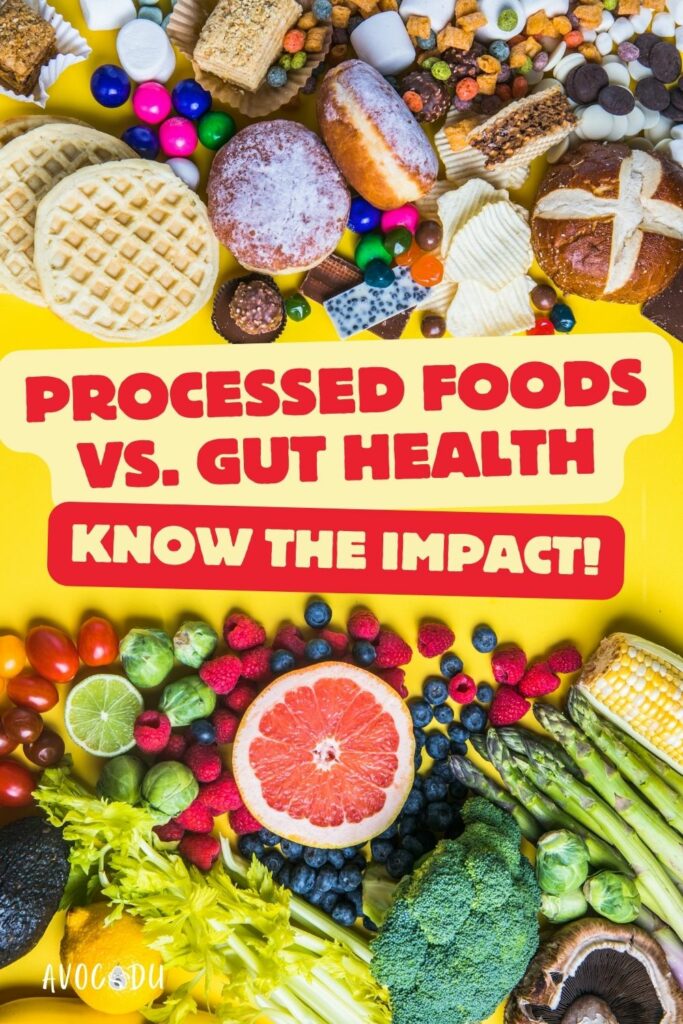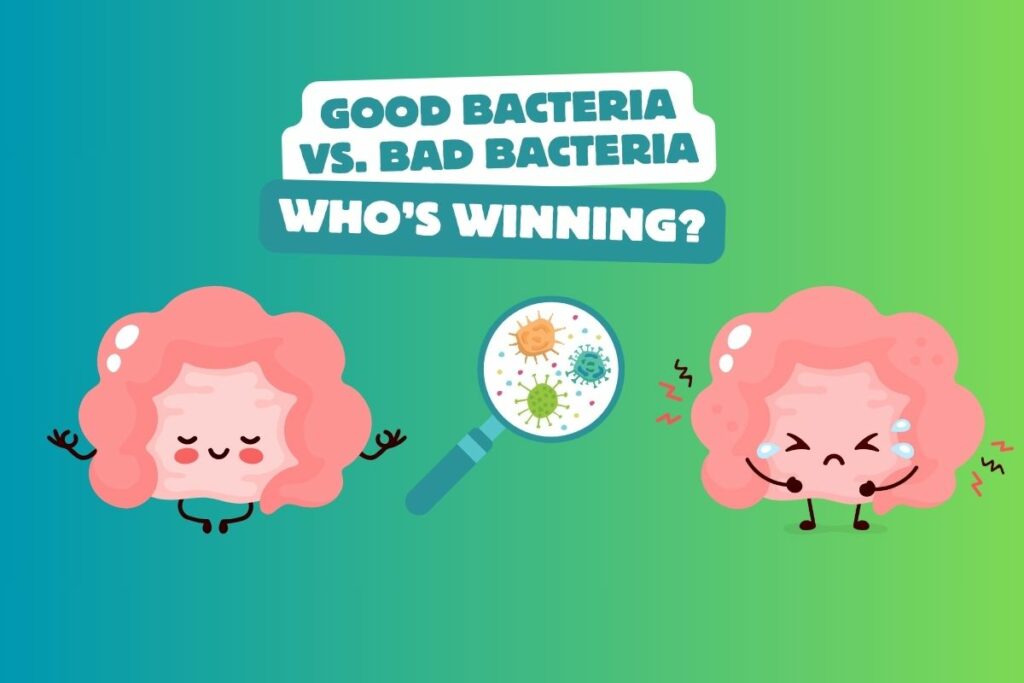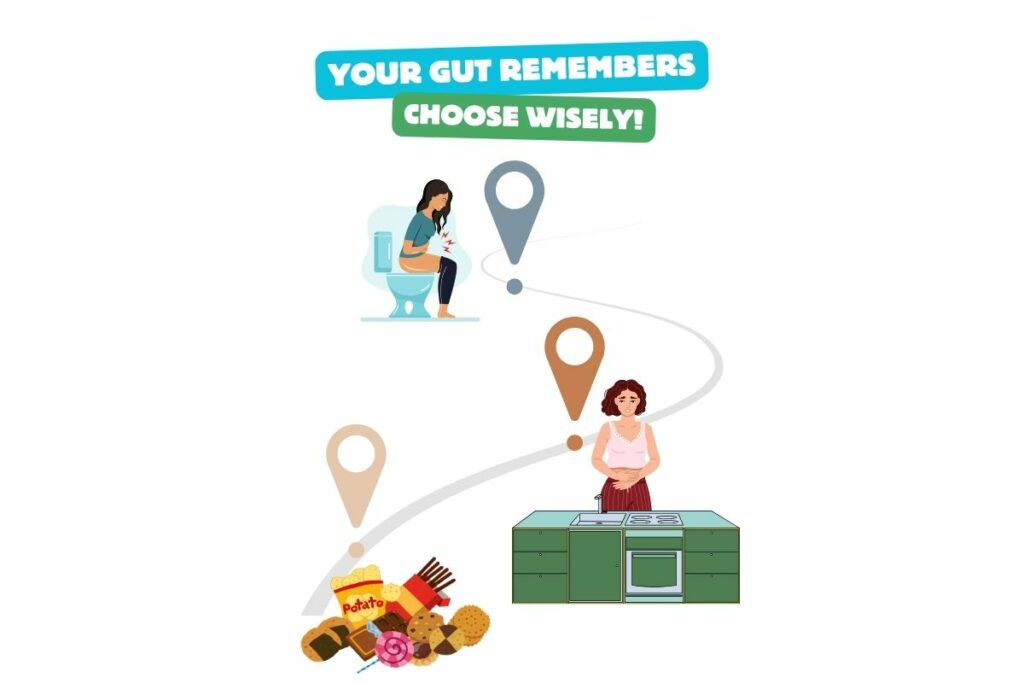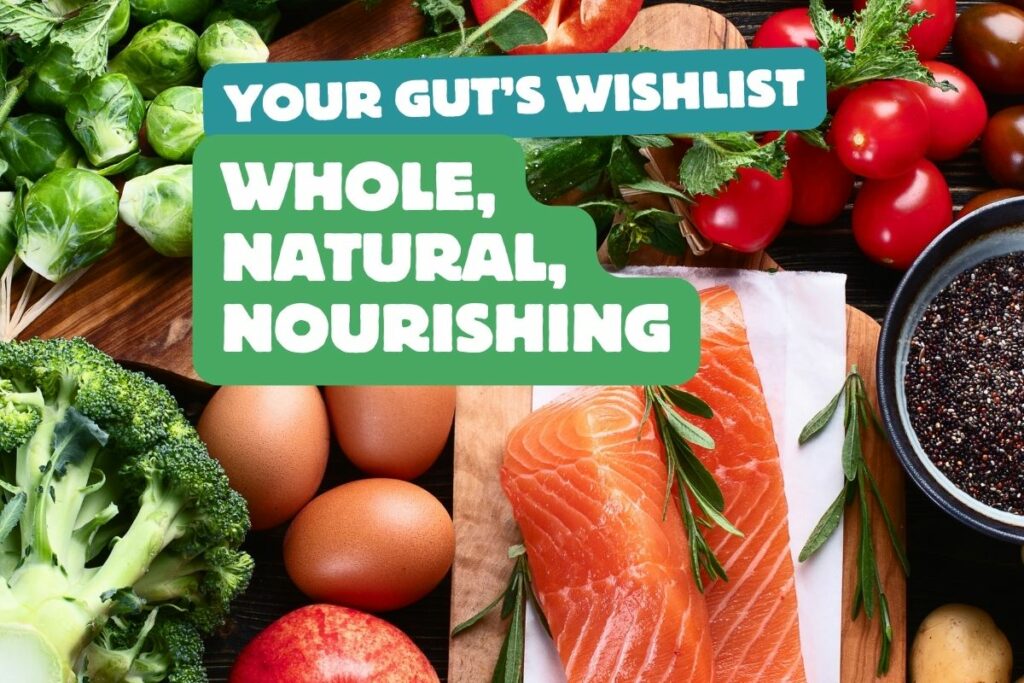How Processed Foods Affect Gut Health
Processed foods are everywhere, tempting us with convenience and flashy packaging. But while they make life easier, they can have serious consequences for your gut health.
Your microbiome—the collection of trillions of bacteria and other microorganisms in your digestive system—plays a crucial role in your overall health.
When you rely too heavily on processed foods, you risk throwing this delicate ecosystem out of balance.
Let’s take a closer look at how processed foods affect your gut and what you can do to keep it healthy.

This post may contain affiliate links, which helps keep this content free. Please read our disclosure for more info.
What Are Processed Foods?
Processed foods are items that have been altered from their natural state through methods like canning, freezing, or adding preservatives.
Minimally processed foods are those that have undergone minimal changes from their natural state and are still packed with nutrients.
These include items like pre-washed spinach, frozen vegetables, and roasted nuts. They retain their original nutritional value while offering convenience, making them a solid choice for a healthy diet.
Highly processed foods, on the other hand, are often loaded with sugar, unhealthy fats, artificial flavors, and preservatives.
These include sugary cereals, soda, microwave meals, and even some foods marketed as “healthy,” like flavored yogurts, protein bars, and diet snacks.
While they might appear nutritious at first glance, many are packed with hidden sugars, artificial sweeteners, and unpronounceable additives.
These foods are far removed from anything you’d find in nature and can wreak havoc on your gut health.
The Gut Microbiome: A Quick Overview

Your gut microbiome is home to trillions of microorganisms, including both good and bad bacteria.
While the term “bacteria” often carries a negative connotation, the good bacteria in your gut are essential for digestion, immunity, and even mental health. However, this balance is fragile.
Processed foods can disrupt the harmony, allowing harmful bacteria to take over. This imbalance can lead to digestive issues, weaker immunity, and increased cravings for unhealthy foods.
Supporting your microbiome with the right nutrients is key to keeping it in tip-top shape.
How Processed Foods Impact the Gut
1. Lack of Nutrients
Processed foods may sometimes contain fiber, but they’re often stripped of essential vitamins, minerals, and healthy fats.
Nutrients like B vitamins, omega-3 fatty acids, and antioxidants are crucial for maintaining gut health.
Without them, your microbiome doesn’t get the diverse fuel it needs to thrive, leaving it vulnerable to imbalances.
2. High Levels of Sugar and Additives
Processed foods are often packed with added sugars and artificial ingredients. These can feed harmful bacteria in your gut, causing them to multiply and outcompete the good bacteria.
Preservatives and emulsifiers can further disrupt the gut lining, leading to inflammation and digestive discomfort.
3. Refined Carbohydrates
Refined carbs, like those in white bread and sugary snacks, break down quickly into sugar, spiking your blood sugar levels and feeding harmful bacteria.
This creates an imbalance in your microbiome, contributing to issues like bloating, inflammation, and irregular digestion.
4. Disruption of Microbial Diversity
Processed foods reduce the diversity of your gut microbiome. A healthy gut thrives on variety, but additives and a lack of natural nutrients in processed foods fail to support this diversity.
The result? Digestive discomfort, weaker immunity, and even mood disturbances.
Short- and Long-Term Effects on Gut Health

In the short term, indulging in too many processed foods can lead to uncomfortable symptoms like bloating, gas, and the dreaded urgency to find a bathroom.
These symptoms aren’t just a minor inconvenience; they’re your gut’s way of signaling that something is off.
You may also experience irregular digestion and fatigue as your body struggles to cope with the imbalance.
Over time, the damage doesn’t just fade away. Long-term effects include an increased risk of chronic conditions like irritable bowel syndrome (IBS), which can make daily life challenging with ongoing digestive disruptions.
Autoimmune disorders can also develop, leaving your body constantly on the defensive.
Gut imbalances have even been linked to mental health challenges, including heightened anxiety, depression, and persistent mood swings, underscoring the gut-brain connection.
A disrupted gut isn’t just about how you feel physically—it can shape your overall health.
The bottom line? Those quick, convenient meals might save you a few minutes now, but they could lead to years of discomfort if they dominate your diet.
What to Eat Instead for a Healthy Gut

Your gut’s wishlist isn’t complicated:
- Fruits and Vegetables: These are packed with fiber, vitamins, and antioxidants that your gut bacteria thrive on. Leafy greens, berries, and carrots are especially beneficial.
- Whole Grains: A steady source of nutrients like B vitamins and iron, plus plenty of prebiotic fiber to support those beneficial microbes. Brown rice, quinoa, and oats are excellent options.
- Fermented Foods: Yogurt, kimchi, sauerkraut, kefir, and miso are brimming with probiotics to replenish and maintain healthy bacteria in your gut.
- Prebiotic Foods: Foods like garlic, onions, bananas, asparagus, and leeks provide the fuel that good bacteria need to grow and stay strong.
- Healthy Fats: Don’t forget avocados, nuts, seeds, and olive oil, which help reduce inflammation and keep your gut lining healthy.
Start small. Swap those chips for an apple, sprinkle some flaxseeds on your oatmeal, or add a serving of kimchi to your dinner.
Even small changes can make a big impact, and your gut will thank you every step of the way.
Practical Tips to Reduce Processed Food Intake
Making changes to your diet can feel overwhelming, but it doesn’t have to be. The goal isn’t perfection; it’s progress.
By taking small, manageable steps, you can reduce your reliance on processed foods and make room for more nourishing options. Here’s how to get started:
- Plan Ahead: Set aside time each week to plan and prep meals and snacks. This way, you’re not scrambling for convenient but less healthy options when hunger strikes. Stock up on staples like fresh produce, whole grains, and lean proteins to make healthy eating easier.
- Read Labels: Check ingredient lists carefully. If it reads like a science experiment or has a long list of unrecognizable ingredients, consider finding a simpler, more natural option. Look for whole foods with minimal processing.
- Simplify Recipes: Focus on meals with just a few wholesome ingredients. Try roasting veggies, grilling chicken, or whipping up a quick stir-fry. Simple cooking techniques can still deliver big flavor.
- Hydrate: Drink plenty of water throughout the day to support digestion and overall health. Keep a refillable water bottle with you and flavor it with fresh fruit or herbs if plain water isn’t appealing. Steer clear of sugary drinks that can derail your gut health goals.
Next Steps: Transform Your Gut Health with a 21-Day Reset

Processed foods might be quick and easy, but they’re no match for the benefits of a gut-friendly diet. Every small change you make can lead to big rewards for your gut health and overall well-being.
Looking for guidance and structure to help you stay on track? The 21-Day Fat Loss Challenge is your ultimate reset plan.

This program is tailored to help you break unhealthy habits, focus on whole, nourishing foods, and see real results in just three weeks. You’ll get:
- An approved food list to help you create meals that suit your tastes and goals.
- A recipe book with a variety of suggestions to inspire your cooking and make meal preparation enjoyable.
- A step-by-step guide to help you build sustainable habits that stick.
- Support group for accountability to keep you motivated every step of the way.
Thousands have already transformed their lives through this program, and you can too. Don’t wait to start feeling your best—take the first step today! Learn more and join here.
